
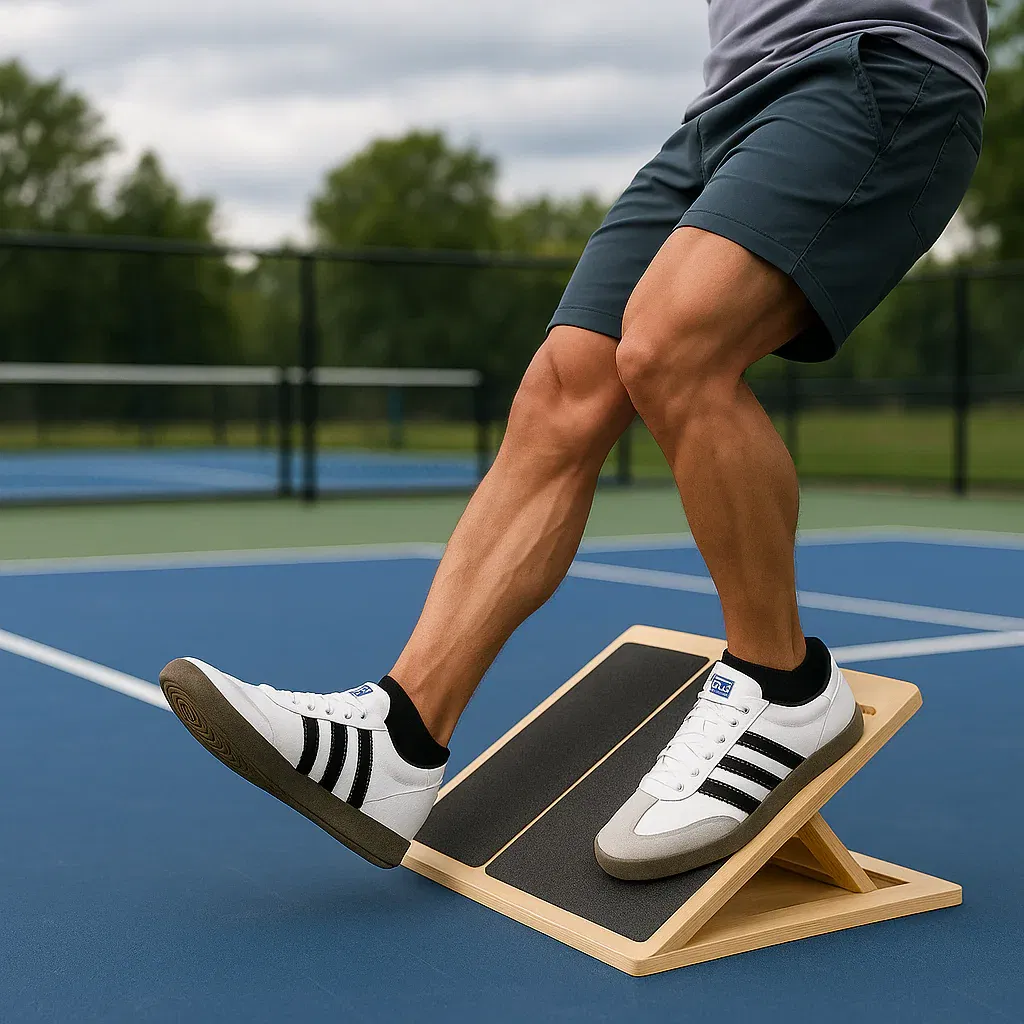
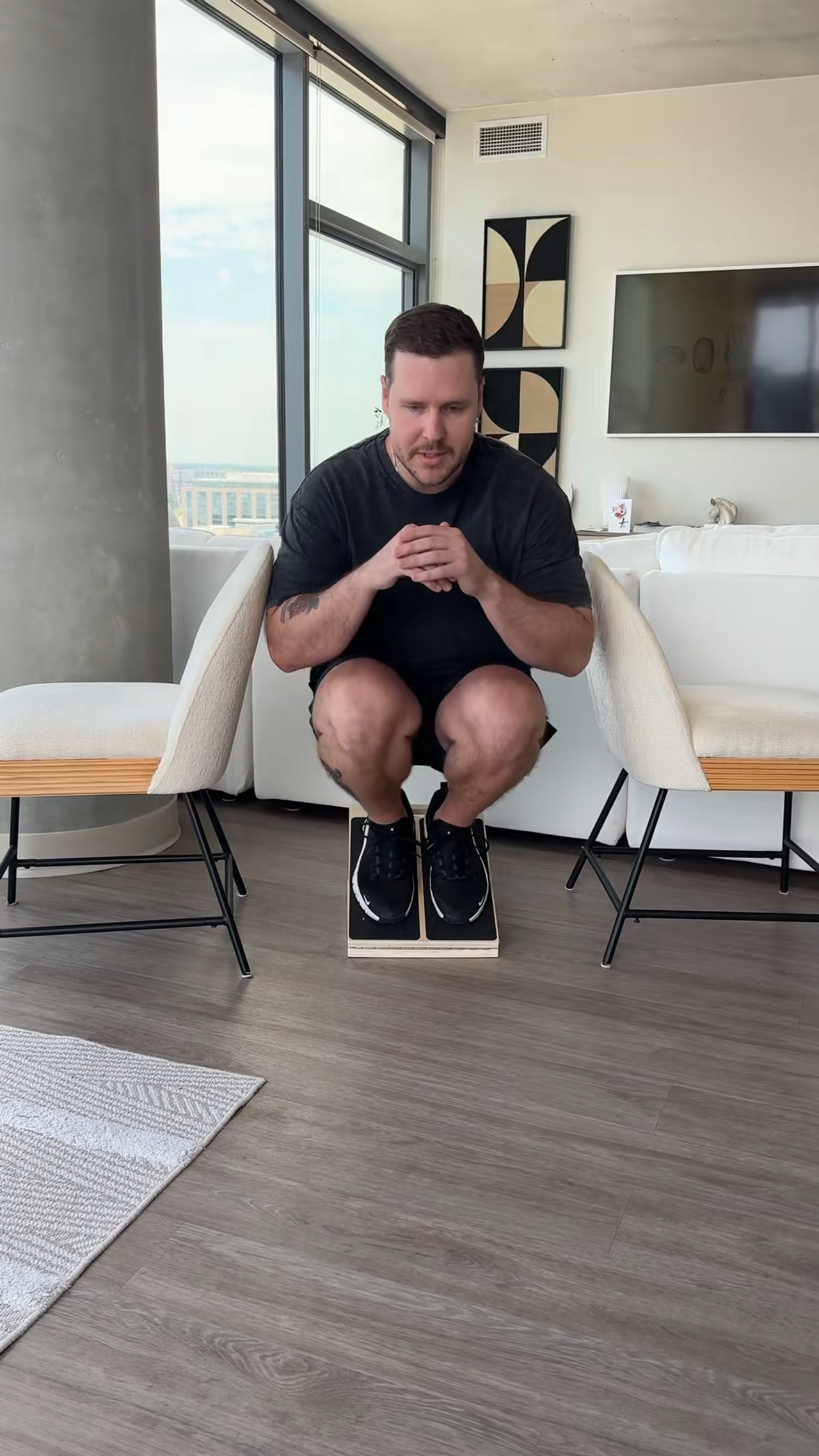




By Dr. Jim Helgas
Last Updated June 4, 2025
"Most Adults Don’t Realize They’re Losing the One Thing That Keeps Them Moving"
As a physical therapist, there’s one thing I’ve seen over and over again — most adults are slowly losing strength and mobility in their legs… and they have no idea it’s happening.
It’s not because they’re doing something wrong. It’s because they’ve stopped doing the things that actually preserve that strength.
The lower body is one of the most ignored areas in everyday life — and over time, that neglect adds up.
If you’re not actively training your legs, your knees, your ankles… they’re not staying the same.
They’re getting weaker, stiffer, and less stable — just very slowly.
And by the time most people notice, it’s already affecting how they move, how they feel, and what they’re able to do.
That’s the part no one talks about — until it’s too late.
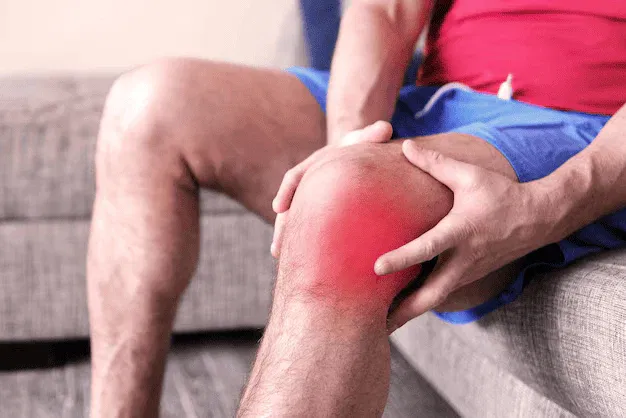
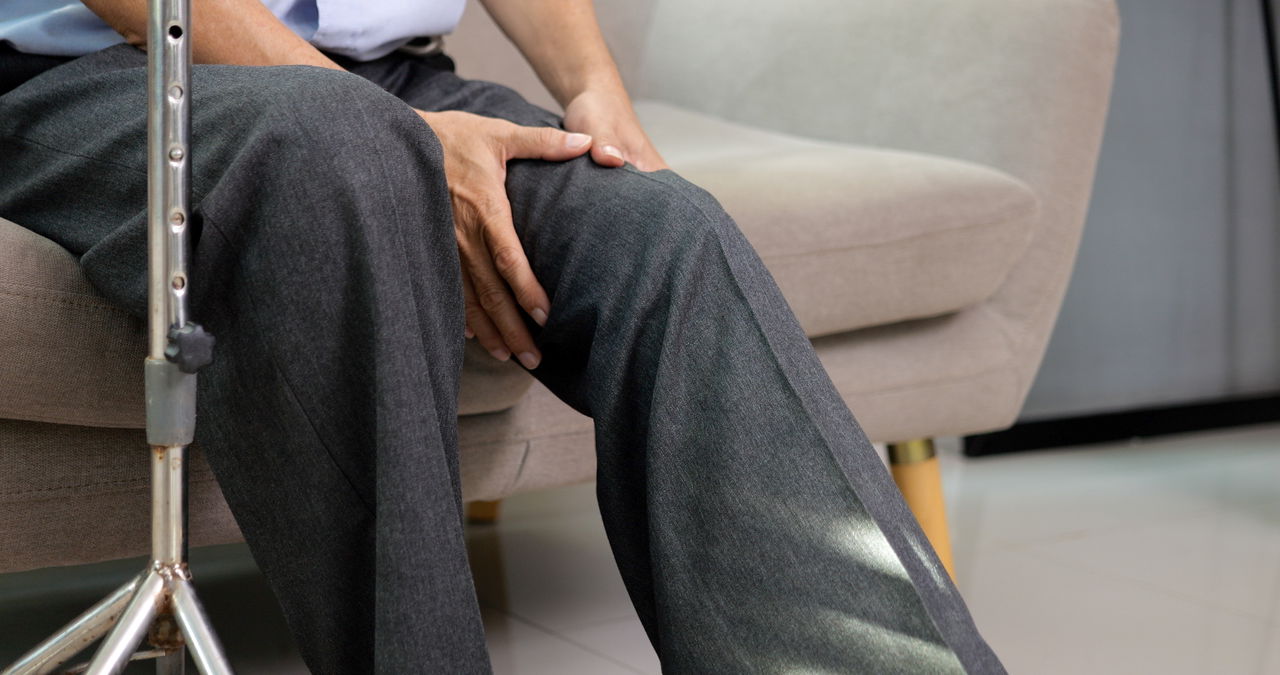
As you age, daily movements are simply not enough to maintain lower body strength.
Many think that taking walks or using the stairs is sufficient enough to keep their legs strong.
But over time, that kind of passive movement simply doesn’t provide enough stimulus to keep the muscles, joints, and stabilizers of the lower body strong.
And without that regular use, the body starts to adapt — just not in a good way.
The back muscles picks up the slack
Balance becomes less reliable
Confidence in motion starts to fade
This might be why some of you are already feeling “off” — even if you can’t explain exactly why.
Maybe it’s a weird, unstable feeling in your lower body.
Or a weird tightness after sitting too long.
Or just that sense that things don’t move like they used to.
And if you don’t feel any of that yet — that’s even better.
Because the sooner you start training your lower body the right way, the easier it is to stay ahead of it.
The good news is, preventing this kind of decline doesn’t require a gym membership, a personal trainer, or hours of painful workouts.
In fact, most adults don’t need more movement — they just need the right kind of movement.
A few focused minutes, done consistently, can be enough to:
Restore ankle and knee mobility
Strengthen key support muscles like the quads and calves
Rebuild confidence and control in everyday motion
But for that to happen, you need two things:
Movements that load the lower body through full range — safely
A setup that makes those movements easy to do at home
That’s what I focus on with clients — and in most cases, it starts with the same two movements.
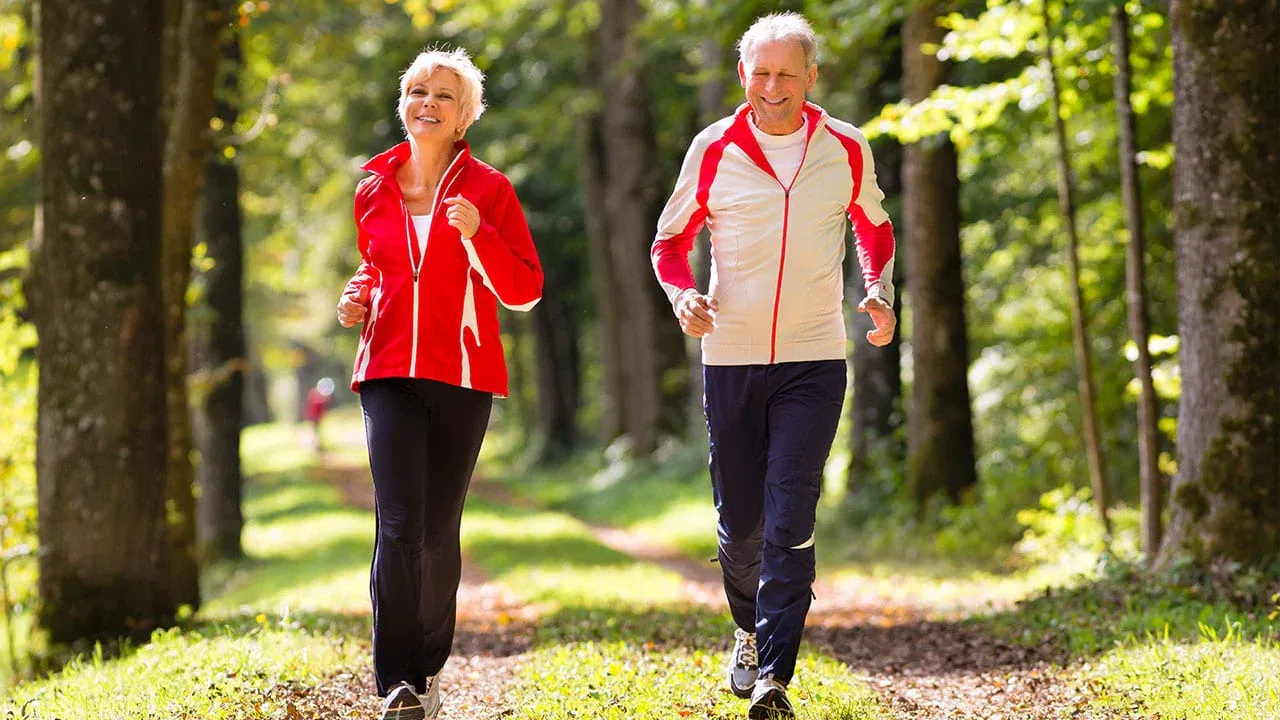
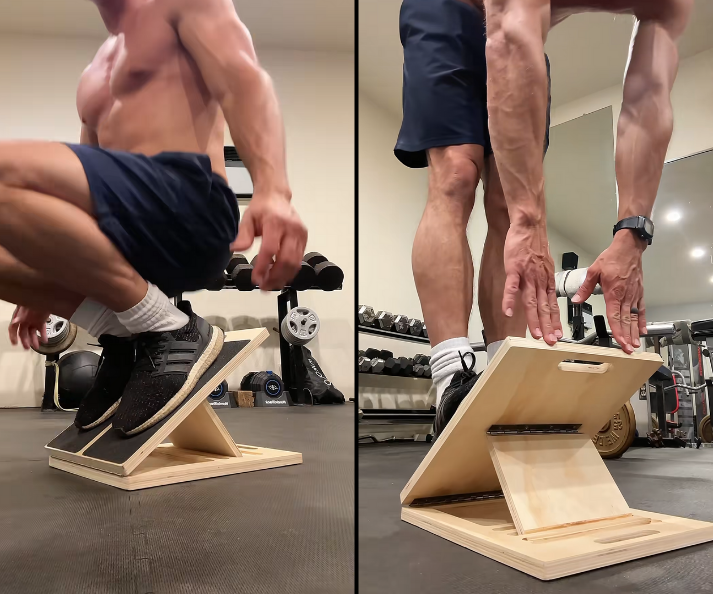
When I work with clients who want to rebuild leg strength and joint health, we almost always start here:
Heels-elevated squats to target the quads, knees, and hips through a deep, controlled range
Toes-elevated calf raises to lengthen and strengthen the calves while restoring ankle mobility
That’s it. Two movements, done properly, with a slight elevation under the heels or toes.
This setup offers a low-impact way to build strength and mobility that most standard gym exercises can’t match.
It’s not about chasing a pump or hitting a PR.
It’s about creating a short, efficient routine that keeps your legs strong, stable, and pain-free — for the long run.

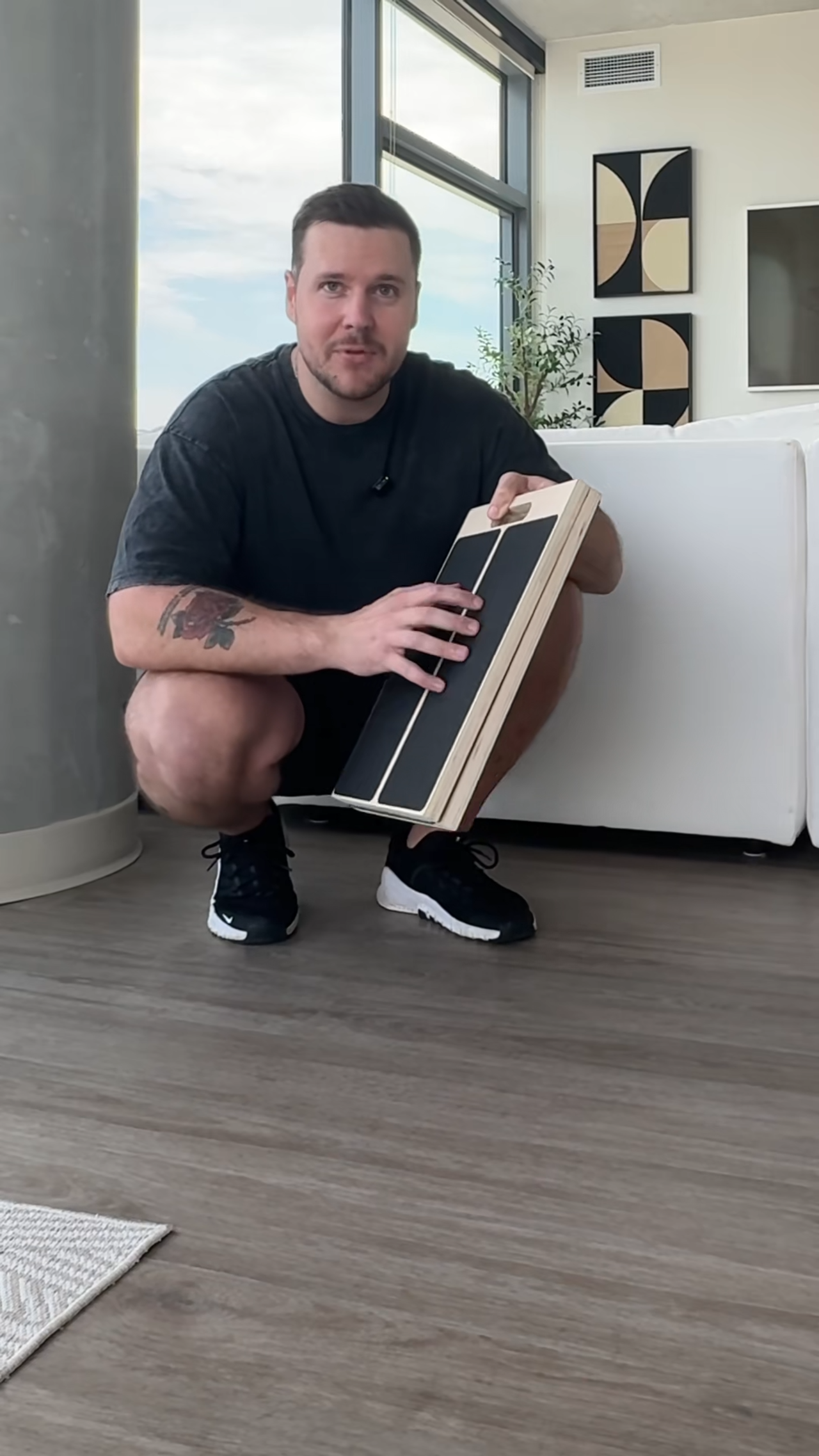
I've tested a lot of ways to set this up at home — stacked plates, makeshift ramps, blocks — but nothing felt consistent or safe enough to recommend.
That’s why I now use and recommend the Flexwell slant board.
It provides the exact angle your body needs, without slipping, tipping, or guesswork.
And unlike most slant boards, which are fixed at a single angle, this one is fully adjustable — which means you can modify intensity, scale movements over time, and use it for multiple purposes.
The adjustability makes it far more versatile, especially for adults who are just starting to rebuild strength or need to progress gradually.
It’s compact, stable, and built to support real weight — everything I look for when recommending equipment to clients.
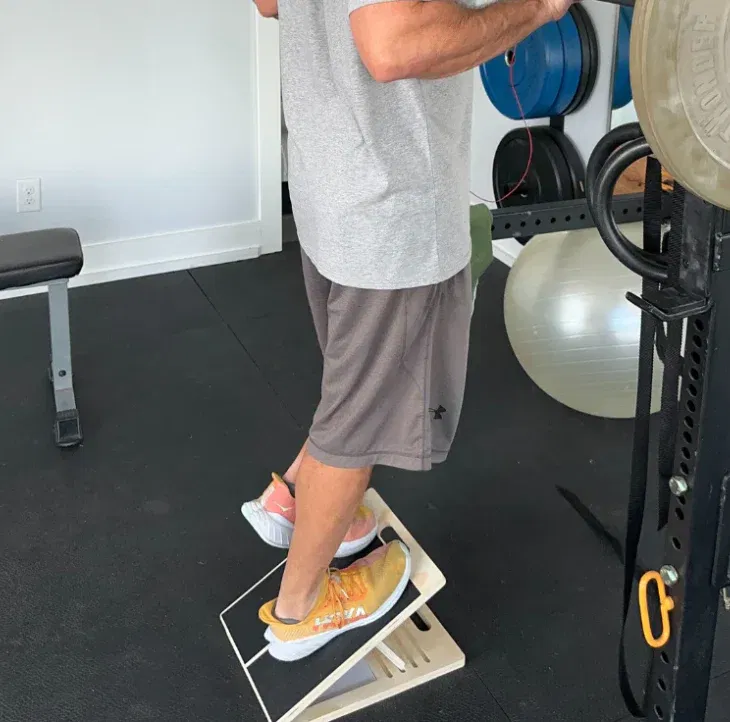

When I recommend a product to a client, it’s not because it looks cool or went viral.
It’s because it solves a real problem — and does it better than anything else I’ve tested.
This setup checks every box I look for:
It guides your body into the right angles for safe, effective movement
It reduces strain on the joints while increasing strength and control
It’s adjustable, compact, and built to last
Most importantly, it helps people take control of their lower body health without needing to rely on a gym, trainer, or complicated program.
That’s why I use it myself — and why I recommend it to clients of all ages.
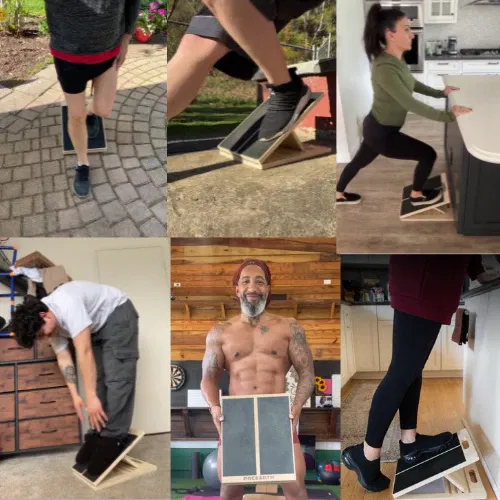
You don’t have to take my word for it.
Over 100,000 adults have added this routine to their weekly habits — many of them starting from scratch after years of doing nothing.
Some were just tired of feeling tight or stiff. Others wanted a way to stay mobile as they got older — without going back to a gym or overcomplicating things.
And many simply wanted a routine they could actually stick to.
From inactive adults just getting started again, to people who’ve always considered themselves “pretty active” — this routine is working.
It’s simple, accessible, and built around the way your body is supposed to move.